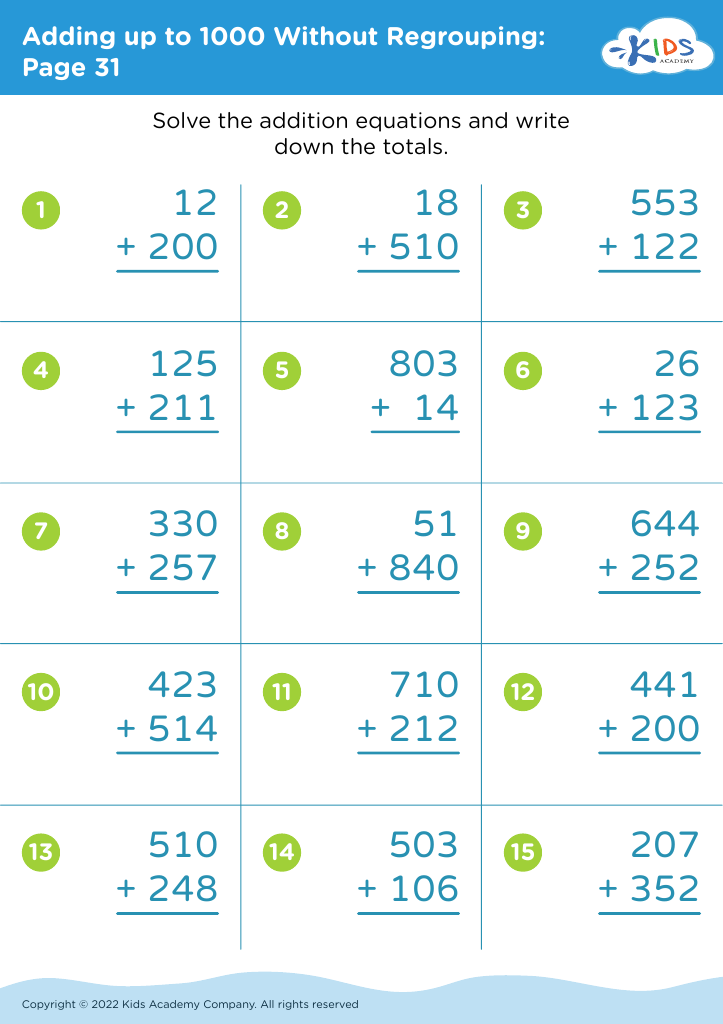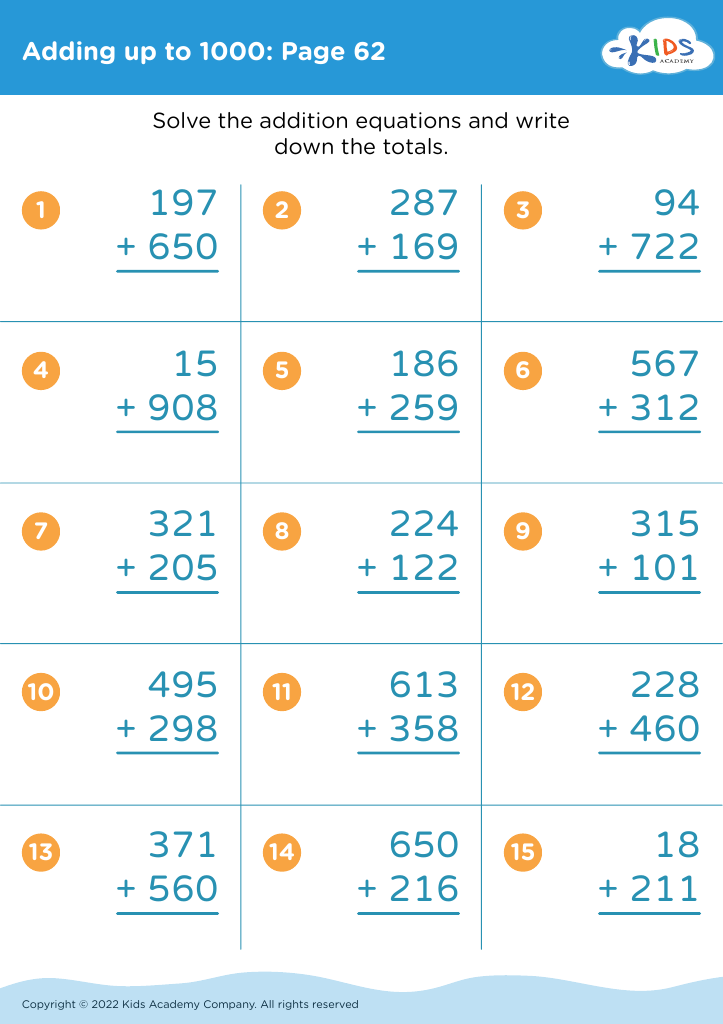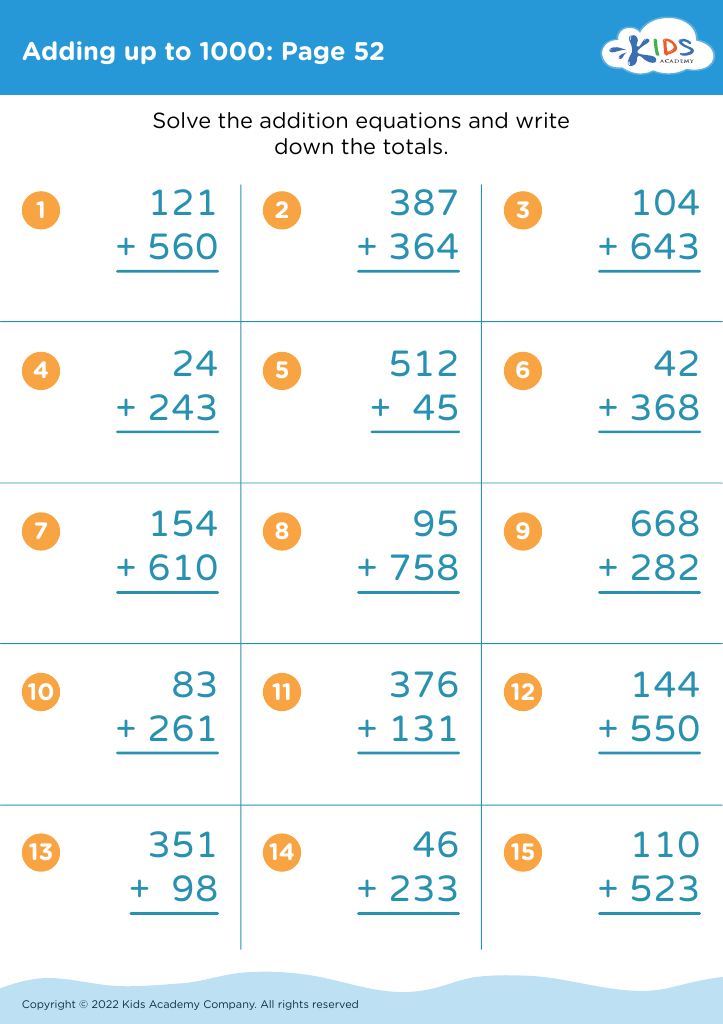Understand fractions Adding up to 1000 Worksheets for Ages 4-7
4 filtered results
-
From - To
Discover our "Understand Fractions Adding up to 1000" worksheets, specially designed for children aged 4-7. These engaging resources help young learners grasp the fundamentals of fractions while building their confidence in math. Through colorful visuals and interactive exercises, kids will explore fraction concepts in a fun and intuitive way. Our worksheets provide numerous opportunities for students to practice adding fractions, giving them essential skills to excel in their math journey. With these educational materials, early learners will develop a solid foundation in fractions that will support their future studies. Ideal for homeschool, classroom, or extra practice at home! Explore today!
Understanding fractions at a young age, especially concepts like adding up to 1000, is crucial for several reasons. Firstly, early mathematical skills such as these lay the foundation for more complex mathematical reasoning later on. By helping children grasp the concept of fractions, parents and teachers are not just teaching numbers but also promoting critical thinking, problem-solving, and the ability to make connections between different mathematical ideas.
Moreover, learning about fractions and their applications in practical scenarios can enhance a child’s ability to manage numbers in real-life situations. This understanding contributes to their financial literacy as they grow, from handling money to understanding division in cooking recipes.
Fractions also empower children to understand proportions and ratios, which are pivotal in various subjects including science and art. This holistic approach to teaching math can make learning enjoyable and relevant, fostering a love for numbers. Additionally, building these skills during ages 4-7, when cognitive development is rapid, means children might find future mathematical concepts easier to grasp. Therefore, both parents and teachers should prioritize teaching fractions because investing in early math education supports children's overall academic success and lifelong learning.















